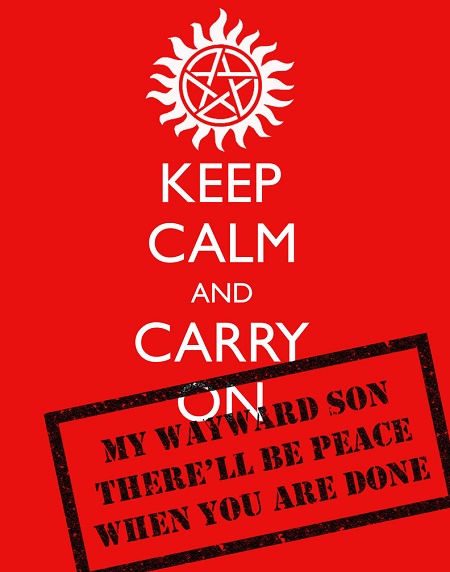(Before I go any further, I want to beg my Loyal Readers not to read anything more into my words than what they actually state. This is a philosophical discussion, written in as dispassionate a manner as I can manage given the circumstances.)
It seems to be a fact of life that when one spouse of an elderly couple dies, it’s not long before the other dies too. I haven’t looked up any actual stats for this — it’s purely an observation — but it seems that if it’s the wife that goes first, it doesn’t take long before the widower follows. It seems especially true if the couple is truly elderly — say, in their 70s or 80s, and I believe that spousal deaths “days after” (and sometimes even “hours after”) are almost a given once a couple has reached their 90s together.
I know exactly how they feel.
What I’ve figured out, speaking just for myself, is that once one is older, the death of a spouse takes away a large reason for the survivor to stay alive. The kids are grown, have left the house and are getting on with their own lives. (Which is exactly as it should be. Nobody should be held to their parents so tightly in adulthood that they can’t follow their own lives’ dreams and ambitions.)
It’s not just the lack of companionship following a spouse’s death. It’s that a large part of living involves being there for someone, to help them, care for them and (if you’re a man) protect them or (if a woman) feed them. (I speak here of a traditional couple, where roles are clearly defined and assumed with willingness and even joy. I have no idea how “modern” couples function, nor do I wish to follow that tangent here.) Once that part of the relationship has ended, what’s left is… not much. In my case, I can cook for myself, clothe myself, defend myself and generally look after myself and my needs. But so what? I’ve always been able to do all that. What a relationship means is that you can do all that, not just for yourself but for someone close to you — and it’s not a duty or obligation; it’s a pleasure to do it, to share it, and to give all that to someone you love.
And it gets worse the longer a couple has been together. In my case, The Mrs. and I were together for over twenty years, and I mean “together” in its most elemental sense: other than the (very) occasional business trip where we were forced to be apart, we were together — and I mean in the same home office, living room, bed or even on the same couch — pretty much all the time. That’s how much we enjoyed each other’s company, conversation and intimacy. If I went to the supermarket, I hurried home as soon as I was done, and if she was out of the house for whatever reason, she’d race home as well. In later years, we were inseparable, as much by choice as (towards the end of her life) by necessity, and let me stress this as strongly as I can: it was never — never — an imposition for either of us. There were no “craft rooms” or “man caves” in our home; if she needed to do some work on her sewing machine, I’d go and sit close to her, or she’d bring the machine and stuff into the family room and work there. The only time we ever declared apartheid was when I wanted to watch a Formula 1 Grand Prix race or a Chelsea football match because the noise drove her scatty, and I’d go watch it in the bedroom. (And get back to where she was, in the living room, library or kitchen the minute the event was done.)
And here’s the problem. That intimacy, that pleasure in each other’s company was forged over many, many years. I’m now in my early sixties, and probably won’t have another twenty years to forge that relationship with another human being, even if I wanted to — and right now, even setting aside my still-active mourning and pain, I don’t want to. There is a feeling of not exactly pointlessness, but of, I don’t know, maybe despair at what life holds for me in the few years remaining to me on this planet.
Of course, I have several very good, very close male friends who are not only supporting me during this shitty period of my life, but have promised to help me achieve the (very few) activities that remain on my bucket list (a topic for another time). But I’m a man, and as much as I enjoy the company of men — and I do, very much — it’s nevertheless true that male companionship is by its very nature episodic and finite: trips to the range, drive trips, hunting trips, cheery conversation over pints of beer (or pints of gin) at the pub, and so on. All of those are wonderful, and I look forward to them with great anticipation and participate in them with considerable enjoyment; but at the end of the day (or evening), I still have to go home to an empty house, an empty living room, and an empty bed. Those are the Empty Times, and they’re lousy.
This is not, by the way, a cry for female companionship. It’s just that, as an old-fashioned man, I miss the intimacy of female companionship — but at the same time, I know that the odds of me ever finding same again are depressingly slim.
I suspect that most older men feel the same way I do, deep inside, and especially so if they’ve been blessed with the same kind of relationship as I was over the past couple of decades. I can’t even begin to think of what George and Barbara Bush mean to each other, after a relationship which has lasted over seventy (!) years. What I do know is that if “Bar” dies before GHWB does, he will follow soon after. That’s not a gloomy prediction: it’s an observation based on many similar circumstances of men like him.
When you reach that stage of your life, the question any man is going to ask himself is: what’s the point of it all? Why carry on?
Hence the title of this piece, and here’s the thing. To give just a few examples, captains of industry, successful and driven politicians or endlessly-creative men do have something to keep them going: their businesses, their idealism, their creativity, whatever. They have a reason to live. But they are the exception. Most men who have lived ordinary lives (such as I) don’t have any of that to keep them going, and they die of loneliness, of a broken heart, or of just plain despair.
I need a reason to live, and other than from my writing (which, admittedly, is a strong one), at the moment it’s hard to find that reason, that purpose. As I said at the top, this is not a cri de coeur or warning of a suicidal impulse — I’m a lot stronger than that, so don’t worry. And maybe this is all just a part of mourning and dealing with the loss of a loved one; I don’t know because I’ve never been here before. I’ll probably get past this mood because I generally do — I am an even-tempered man not susceptible to mood swings; but as much as I know that “this too, will pass”, it sucks all the same. And I’ll be really honest: many artists and writers find that pain is a catalyst for their creativity, but for me, it’s hard to be creative at a time like this. It’s easier to write a blog, which is reactionary writing and commentary, than to find the impulse to pen a new novel or short story.
I understand the appeal of religion, now, to people of my age and circumstance. It must be so comforting to feel the presence of some greater power that will soothe the torture of existence, or an afterlife which promises reunion with the love of one’s life. Sadly, I still can’t go for that, despite the temptation, because it’s just not realistic.
Reality is where I live, and right now, reality is pretty fucking bleak. There’s a very good reason I chose Max Bolotov’s The Setting Sun as the header of this new blog.


